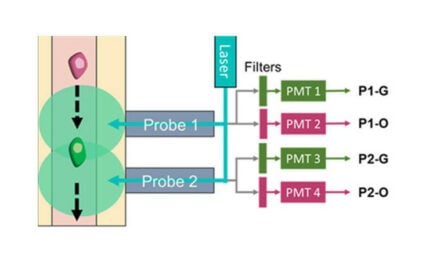The National Center for Child Health and Development (NCCHD), Japan, and OmniTier Inc. detailed a collaboration in which its genomic analysis platform improved diagnostics rates for rare diseases.
In a benchmark re-analysis study using its proprietary methodology and database implemented on OmniTier’s CompStor Insight variant interpretation and custom database creation platform, NCCHD achieved a diagnostics rate of approximately 42% compared to its previous rate of 35%.
This improvement was enabled through OmniTier’s CompStor platform, which features a proprietary AI classifier that more accurately identifies the causal variants. It achieves this by searching over an expanded set of annotated variants derived from a larger number of standard and custom annotation databases, before applying ACMG guidelines and other ranking factors, to prepare the clinical draft report.
“Achieving highly accurate diagnostics for rare genetic diseases is vital for us in pediatric healthcare. We are very pleased to achieve the significant increase in the diagnostics rate for our methodology using OmniTier’s powerful variant interpretation platform,” says Tadashi Kaname, MD, PhD, director of Genome Medicine at NCCHD. “We have been seeking for some time a customizable platform for our diagnostics methodologies and clinical report preparation. OmniTier’s CompStor appliance provides us a high level of automation and sophisticated filtering, along with dramatically reduced runtime and cost.”
NCCHD’s Re-Analysis Study
The re-analysis study by the Department of Genome Medicine at NCCHD used a cohort of 1,293 proband WES datasets generated by Illumina short-read NGS sequencing. The proband set comprised 47 individuals, 67 duos, and 1,179 trios. All datasets were analyzed using OmniTier’s CompStor Novos for secondary analysis and CompStor Insight for tertiary analysis. Of the 1,293 datasets, causal variants for 543 probands were successfully identified.
The causal variants were identified by SNVs in 523 cases, and CNVs in the remaining 20 cases. Relative to its previous analysis, NCCHD achieved 42%, a 7% higher diagnostic rate, with the CompStor platform, representing successful diagnosis of 90 more probands in the cohort.
The CompStor platform is a customizable and scalable end-to-end genomic analysis appliance, designed for on-premise, edge, or hybrid cloud deployments, ideal for locations with limited or no internet connectivity. The CompStor Novos secondary analysis appliance supports variant calling for both long- and short-read sequencing technologies. The CompStor Insight tertiary analysis appliance features automated workflows for annotation, filtering, visualization, querying variant data, and clinical report preparation.
Utilizing OmniTier’s proprietary tiered memory acceleration technology, CompStor Insight can perform annotation across a large number of standard and custom databases to improve the probability of identifying true causal variants. The end-to-end Compstor platform (secondary analysis and variant interpretation) can analyze a typical 30x WGS dataset—from FASTQ-to-draft report—in about 3 hours, and WES datasets in about 30 minutes.
Besides supporting accelerated variant and GWAS analysis, CompStor Insight is designed to efficiently create custom databases derived from local population and ethnic groups. This feature is one of the drivers for the improvement in NCCHD’s diagnostic rate, the company says.
“We have enjoyed our collaboration with NCCHD, a leader in developing genomics diagnosis methodologies for pediatric rare diseases,” says Hemant Thapar, CEO and founder of OmniTier. “For the highest possible diagnosis rate, local population and specific ethnic variant data will be critical. Our platform is architected for maximal flexibility, to enable our customers to use their own methodologies and custom databases along with local best practices for delivering affordable genomic healthcare.”





